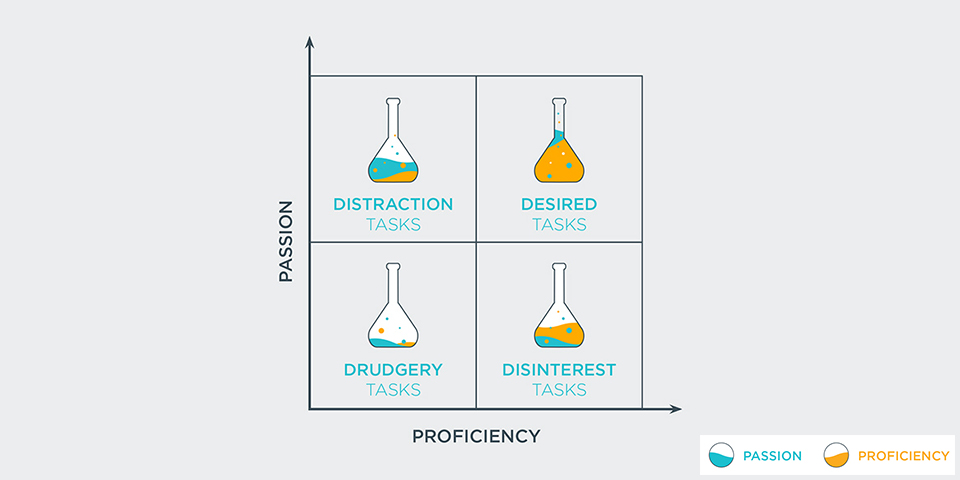
How to prepare for an exit
November 12, 2022Trust between managers and employees is considered the primary characteristic of the very
best workplaces. Companies with high levels of trust beat the average annual returns of the
S&P 500 by a factor of three. Trust holds teams and organizations together. Without trust
there is no connection between people. People at high-trust companies report 74% less
stress, 106% more energy at work, 50% higher productivity, 76% more engagement, 29%
more satisfaction in their lives, and 40% experience less burnout than people at low-trust
organizations.
Yet, according to PWC’s 2016 Global CEO Survey 50% of CEOs worldwide consider lack of trust to be a significant threat to their organizational growth. Managers are still afraid of entrusting their teams. Employees still considering their bosses as intimidating elements to be carefully approached. So, what is trust and how can we build it?
The Four Elements of Trust
Trust is defined as choosing to risk making something you value vulnerable to another person’s actions. What you make vulnerable can range from concrete things as money, a job, a promotion, or a particular goal, to less tangible things like a belief you hold, a cherished way of doing things, your reputation, or even your sense of happiness and well-
being. Whatever you choose to make vulnerable to the other’s actions, you do so because you believe their actions will support it, or at the very least, will not harm it.
The choice of trust consists of four distinct assessments about how someone is likely to act. These assessments are (i) sincerity, (ii) reliability, (iii) competence, and (iv) care. Together they define what we consider to be a person’s trustworthiness.
Sincerity is the assessment that you are honest, that you say what you mean and mean what you say; you can be believed and taken seriously. It also means when you express an opinion it is valid, useful, and is backed up by sound thinking and evidence. And it means that your actions align with your words.
Reliability is the assessment that you meet the commitments you make, that you keep your promises.
Competence is the assessment that you have the ability to do what you are doing or propose to do. In the workplace this usually means the other person believes you have the requisite capacity, skill, knowledge, and resources to do a particular task or job.
Care is the fundamental assessment that you have the other person’s interests in mind as well as your own when you make decisions and take actions. Of the four assessments of trustworthiness, care is the most important for building trust. When people believe you hold their interest in mind, they will extend their trust more broadly to you.
Building Trust
Most people believe that they are trustworthy. How come most of us trust only a handful of colleagues? The numbers don’t seem match. Are believing to be trustworthy and being perceived as trustworthy by others two different things?
Research has shown that seven behaviors contribute to establishing trust: respecting boundaries, being reliable, respecting confidentiality, integrity, non-judgement, and generosity.
- Respect the other people’s personal boundaries. When unclear about what’s ok or not, ask. Be prepared to say or hear no.
- Do what you say you’ll do. Stay aware of your competencies and limitations, so you don’t overpromise and are able to deliver on commitments and balance competing priorities.
- Admit your mistakes, apologize and compensate for them. Raise your self-awareness to notice more of your glitches and mistakes.
- Don’t share information or experiences that are not yours to share. Make sure not to share information about other people’s information that should be confidential.
- Be courageous and do what is right, instead of being comfortable doing what is fun,fast or easy. Live your values rather than professing them.
- We all screw up at work, parenting, love, and life. And it comes as a relief to catchsomeone else in worse struggle, even if it is for five minutes only. Don’t fall into that trap!
Learning about trust versus having it in the bones
There is a plethora of books on leadership, trust that reflect the worlds wisdom on the most effective way we can manage people in organizations. However, as the Asaro tribe in Papua New Guinea are saying: “Knowledge is only rumor until it lives in the bones”. The only way to get knowledge into our bones is to practice it, screw up, learn more, repeat. This takes time and often fails when the new knowledge relates to one of our blind spots. We see this easily in other people. For instance, in situations where they consistently choose the wrong partner despite reading one relationship guide after the other. Working with a coach enables and speeds up the process of truly becoming the owner of the knowledge and living it.


